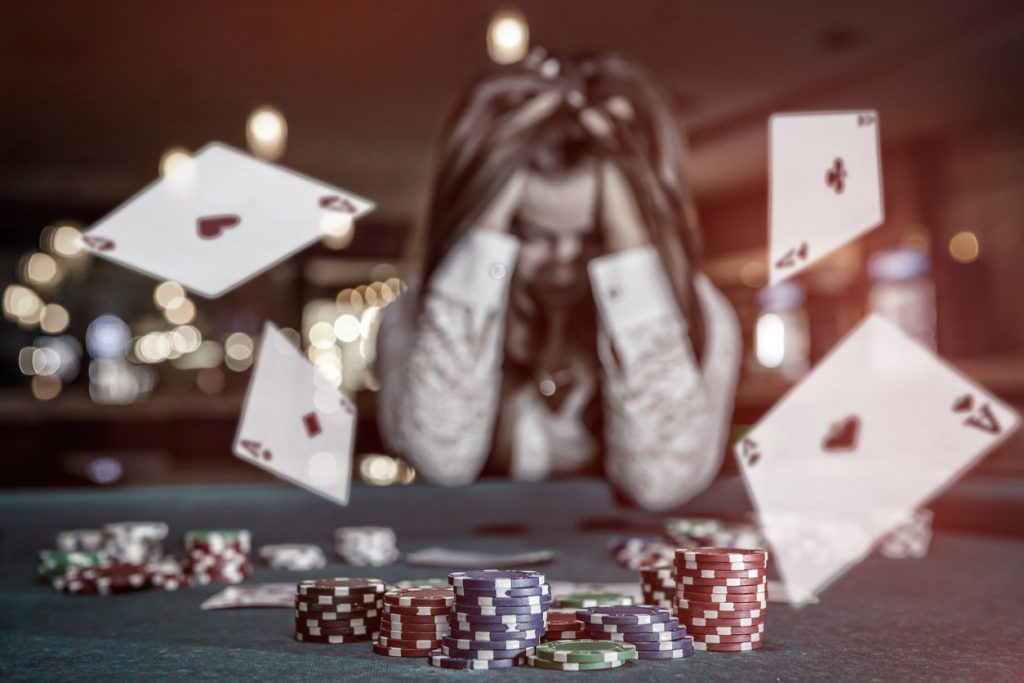Imagine a life where the thrill of a potential win is overshadowed by the crushing weight of debt, strained relationships, and a sense of hopelessness. This is the reality for many Africans struggling with gambling addiction. As the global gaming industry continues to grow, Africa has become a prime target for online betting sites, lotteries, and casinos. While some people can gamble responsibly, others find themselves trapped in a vicious cycle of addiction.
Gambling addiction, also known as ludomania, is a recognized mental health disorder that can have devastating consequences on individuals, families, and communities. In Africa, the problem is further complicated by limited awareness, inadequate support systems, and a general reluctance to seek help.
So, how can we empower Africans to overcome Ludomania? It begins with understanding the problem, recognizing the signs, and seeking help.
Recognizing the Signs of Gambling Addiction
Gambling addiction can be subtle, and it’s essential to identify the warning signs early on. Do you or someone you know:
- Spend more money on gambling than intended?
- Try to control or cut down on gambling, but can’t?
- Feel irritable or restless when trying to stop gambling?
- Use gambling as a way to escape from problems or negative emotions?
- Lie about gambling habits or hide evidence of gambling?
- Gamble to the point of jeopardizing relationships or work?
- Use gambling to cope with stress, anxiety, or depression?
If you’ve answered “yes” to several of these questions, it may be time to seek help.
Conquering Gambling Addiction in Africa: Strategies for Success
- Seek Professional Help: Cognitive-behavioral therapy (CBT) and motivational interviewing (MI) are effective therapies for addressing gambling addiction. Look for licensed therapists or counselors specializing in gambling addiction.
- Support Groups: Join a support group, such as Gamblers Anonymous (GA), to connect with others who are struggling with addiction. Sharing experiences and receiving guidance from peers can be incredibly empowering.
- Self-Help and Education: Learn about gambling addiction, its consequences, and strategies for overcoming it. Websites, books, and documentaries can provide valuable insights and resources.
- Family Support: Educate loved ones about gambling addiction, and encourage them to seek help if they’re struggling with their own addiction. A supportive family environment can make a significant difference in the recovery process.
- Alternative Activities: Engage in hobbies, sports, or creative pursuits that bring joy and fulfillment. This can help distract from the urge to gamble and provide a sense of purpose.
- Budgeting and Financial Planning: Create a realistic budget and prioritize essential expenses over discretionary spending. This can help reduce the temptation to gamble and alleviate financial strain.
- Blocking and Exclusion: Utilize online tools and apps that block gambling websites or exclude users from participating in online gambling activities.
African Initiatives and Resources
Several organizations are actively working to address this issue in Africa:
- The Responsible Gaming Council (RCG) promotes responsible gambling practices and provides resources for those struggling with addiction.
- Gamblers Anonymous (GA) offers support groups and resources specifically tailored to the African context.
- The National Council on Problem Gambling (NCPG) provides education, advocacy, and research to address problem gambling.
Real-Life Examples
Meet Marzz who shares his story on gambling addiction, he said “I’m sharing my story in hopes of helping others who may be struggling with the same secret. I’ve been battling a gambling addiction, which has led me down a dangerous path of chasing losses. I once lost three months’ worth of salary to online betting, and the shame and guilt I felt were overwhelming. Despite the negative consequences, I continued to gamble, fuelled by the false hope of recouping my losses and achieving instant wealth. But the cycle only led to more financial and emotional pain” as reported by Nairaland Forum
Breaking the Cycle of Shame and Silence
Gambling addiction in Africa is a complex issue, but it’s not insurmountable. By acknowledging the problem, seeking help, and supporting one another, we can overcome the stigma surrounding addiction and work towards a brighter future.
Remember, you are not alone in this struggle. Seek help, and together, let’s break the cycle of shame and silence surrounding gambling addiction in Africa.
Author: Nasif K Balinda
